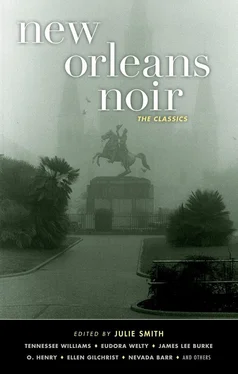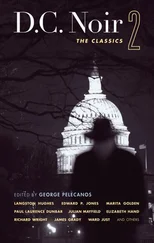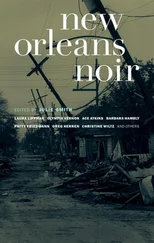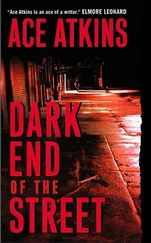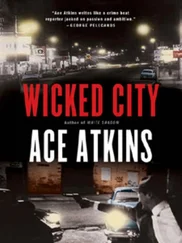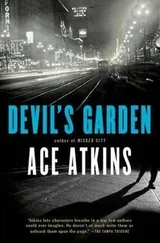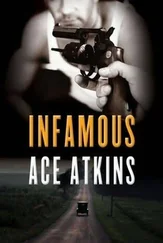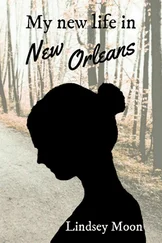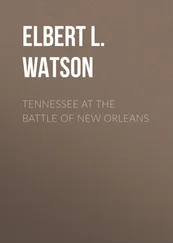Ace Atkins - New Orleans Noir - The Classics
Здесь есть возможность читать онлайн «Ace Atkins - New Orleans Noir - The Classics» весь текст электронной книги совершенно бесплатно (целиком полную версию без сокращений). В некоторых случаях можно слушать аудио, скачать через торрент в формате fb2 и присутствует краткое содержание. Город: New York, Год выпуска: 2016, ISBN: 2016, Издательство: Akashic Books, Жанр: Детектив, на английском языке. Описание произведения, (предисловие) а так же отзывы посетителей доступны на портале библиотеки ЛибКат.
- Название:New Orleans Noir: The Classics
- Автор:
- Издательство:Akashic Books
- Жанр:
- Год:2016
- Город:New York
- ISBN:978-1-61775-384-8
- Рейтинг книги:3 / 5. Голосов: 1
-
Избранное:Добавить в избранное
- Отзывы:
-
Ваша оценка:
- 60
- 1
- 2
- 3
- 4
- 5
New Orleans Noir: The Classics: краткое содержание, описание и аннотация
Предлагаем к чтению аннотацию, описание, краткое содержание или предисловие (зависит от того, что написал сам автор книги «New Orleans Noir: The Classics»). Если вы не нашли необходимую информацию о книге — напишите в комментариях, мы постараемся отыскать её.
takes a literary tour through some of the darkest writing in New Orleans history.
New Orleans Noir: The Classics — читать онлайн бесплатно полную книгу (весь текст) целиком
Ниже представлен текст книги, разбитый по страницам. Система сохранения места последней прочитанной страницы, позволяет с удобством читать онлайн бесплатно книгу «New Orleans Noir: The Classics», без необходимости каждый раз заново искать на чём Вы остановились. Поставьте закладку, и сможете в любой момент перейти на страницу, на которой закончили чтение.
Интервал:
Закладка:
I organized the anthology chronologically because I thought it was fascinating to see how ways of talking about violence, brutality, despair, and injustice have evolved over nearly two centuries. It has always been curious to me that New Orleans, with all its mystery and crime, has produced so few detective series. John Dickson Carr once set a trilogy here. But other than that, if there were any at all before Chris Wiltz introduced her Neal Rafferty series in 1981, I can find no record of it. Wiltz was first, but then came a small deluge, including John and Joyce Corrington, O’Neil De Noux, Ace Atkins, James Colbert, Barbara Colley, J.M. Redmann, Barbara Hambly, James Sallis, Tony Fennelly, Greg Herren, Robert Skinner, D.J. Donaldson, David Fulmer, Dick Lochte, Tony Dunbar, me, and, a few years later, Bill Loehfelm. There was also, of course, James Lee Burke, but he is sui generis , partly because he’s a titan and partly because, aside from The Neon Rain , he really writes about Southwest Louisiana, with the occasional New Orleans chapter included — to which we cling desperately! (Disclaimer here: I’m not counting any series set outside Orleans Parish, like Charlaine Harris’s Sookie Stackhouse series, nor am I counting exclusively self-published series.)
I mention all this to put fictional Big Easy crime in perspective. Of the distinguished group above, I’m lucky to have found excellent stories by Burke, De Noux, and Atkins, and I’ve unearthed a few other goodies as well. Ellen Gilchrist’s “Rich” has become a modern classic. Poppy Z. Brite came up with a historical — and slightly supernatural — angle in “Mussolini and the Axeman’s Jazz.” In the tiny but poignant “Rose,” John Biguenet delves into the devastating psychological effects of a crime. Valerie Martin in “Spats,” and Nevada Barr in “GDMFSOB,” explore similar themes of love gone wrong. (Incidentally, though Barr is a favorite hometown writer to many — since her Anna Pigeon series takes place in a different national park each time — her home base is New Orleans.)
No contemporary New Orleans anthology is complete without a Hurricane Katrina story, since that’s our reality now, our way of reckoning with time and measuring our reclaimed lives, much the same way 9/11 remains a reality for most New Yorkers. Like the Holocaust, it’s not something we want to forget, no matter how painful the memory. James Lee Burke’s “Jesus Out to Sea” manages both to evoke that terrible time and the whole world of beauty (and crime) that preceded it.
Last is the tragic tale of a fourteen-year-old already in enough trouble to have an ankle bracelet. It’s by Maurice Carlos Ruffin, a stunning new writer who’s been making waves around his hometown ever since he turned up in James Nolan’s fabled writing class a few years ago. Baby, as the kid in the story is called, is a product of his neighborhood — and isn’t that what this book’s all about?
If you’re from New Orleans, the neighborhood theme will resonate like Tibetan temple bells. And yet, surely every city has similar hoods, similar behavior patterns, similar travails — and has had them forever. “Indeed,” wrote Voltaire, “history is nothing more than a tableau of crimes and misfortunes.”
Julie Smith
New Orleans, LA
January 2016
Part I
The Awakening
A Marriage of Conscience
by Armand Lanusse
(Originally published in 1843)
St. Louis Cathedral
One Sunday morning, when I returned to this town after a few days away, I was strolling aimlessly through the streets when the sound of the bells of the old cathedral drew me to the holy temple. Let us join, I told myself, the crowd of the faithful who always fill the sanctuary when the Lord’s day returns; let us go hear the voice of the ministers of a tolerant and merciful God praising his infinite greatness; let us go listen to the holy, eloquent words of the wise priest who is temporarily replacing the respectable parish priest that death has just taken from us. A few young men were gathered at the church door and as I walked past them, the words schism, priests, and churchwardens struck my ear. I crossed the threshold of the temple and was astonished when I saw only two or three people kneeling on the stone floor instead of the crowd I thought I would encounter; instead of the holy hymns and evangelical words I came to hear, absolute silence reigned inside this vast edifice.
I tried to imagine what could possibly cause such abandonment of this holy place, which has been so greatly venerated for so long by the people of Louisiana. I was thinking about the few words I had gathered at the entrance when I saw a beautiful young woman with wild hair and disheveled clothing run in through one of the side doors of the temple, cross the balustrade that separates the nave from the sanctuary, and prostrate herself on the steps of the altar devoted to the comforter of the afflicted, that tender and poetic Mary, mother of the savior of mankind. I approached the balustrade and leaned against it, unnoticed by this stranger, so absorbed were all the faculties of her being in the prayer she was murmuring. Suddenly, she raised her eyes bathed in tears toward the image of the queen of martyrs and cried out: “O holy Mary, my patron saint, take pity on me. While the story of my sufferings makes my sisters smile and my mother herself calls me a madwoman when she sees my tears flowing, O you, virgin full of indulgence, now that I have prayed and a little tranquility has slipped into my heart, please listen kindly to what I need to tell you in the hopes of lightening my sorrow.”
After collecting herself for a moment, the young woman continued in these terms:
“Up to the age of sixteen, my life was as calm as the innocent thoughts that then filled my mind. I obeyed the lessons of a pious aunt who loved me tenderly and with whom I had lived since I was a very small child, and I lovingly practiced the admirable precepts of the Christian religion. Alas, death came to rob me of that good relative and I had to go live with my mother, whom I sincerely loved, but the noisy life there was not at all in harmony with the peaceful habits I had acquired since early childhood.
“I had lived in my mother’s house for a year and I still could not accustom myself to the silly language of my elder sisters, who were only interested in balls, feasts, and finery. They went to every party and always wanted me to accompany them. Up to then I had resisted all temptations, but at the end of the last carnival, my mother, who said she did not like my stubbornness, demanded that I enter a world that was utterly new to me.
“So to obey her, I made up my mind to go to several of those balls, which always made me shiver with horror; for in the midst of a crowd of men speaking a different language, with impudent looks and bold gestures, not one girl had a brother under whose protection she could take shelter; not one woman had a legitimate husband whose honorable name could impress that vulgar crowd avid for crude pleasures.
“At one of these strange gatherings, I had retired, according to my custom, to the least conspicuous part of the room, disposed to refuse all the invitations to dance that I might receive. I had already turned down several of them when a young man whose manners were full of distinction, quite unlike those of the other dancers, came up to me and with exquisite politeness insisted that I grant him the favor, he said, of giving him the waltz that was about to begin. I wanted to refuse again but I did not have the strength to do so, unfortunately for me. At that moment, the orchestra began to warm up, his hand grasped mine, I gave myself entirely to him, and we were soon immersed in the crowd of dancers.
Читать дальшеИнтервал:
Закладка:
Похожие книги на «New Orleans Noir: The Classics»
Представляем Вашему вниманию похожие книги на «New Orleans Noir: The Classics» списком для выбора. Мы отобрали схожую по названию и смыслу литературу в надежде предоставить читателям больше вариантов отыскать новые, интересные, ещё непрочитанные произведения.
Обсуждение, отзывы о книге «New Orleans Noir: The Classics» и просто собственные мнения читателей. Оставьте ваши комментарии, напишите, что Вы думаете о произведении, его смысле или главных героях. Укажите что конкретно понравилось, а что нет, и почему Вы так считаете.
